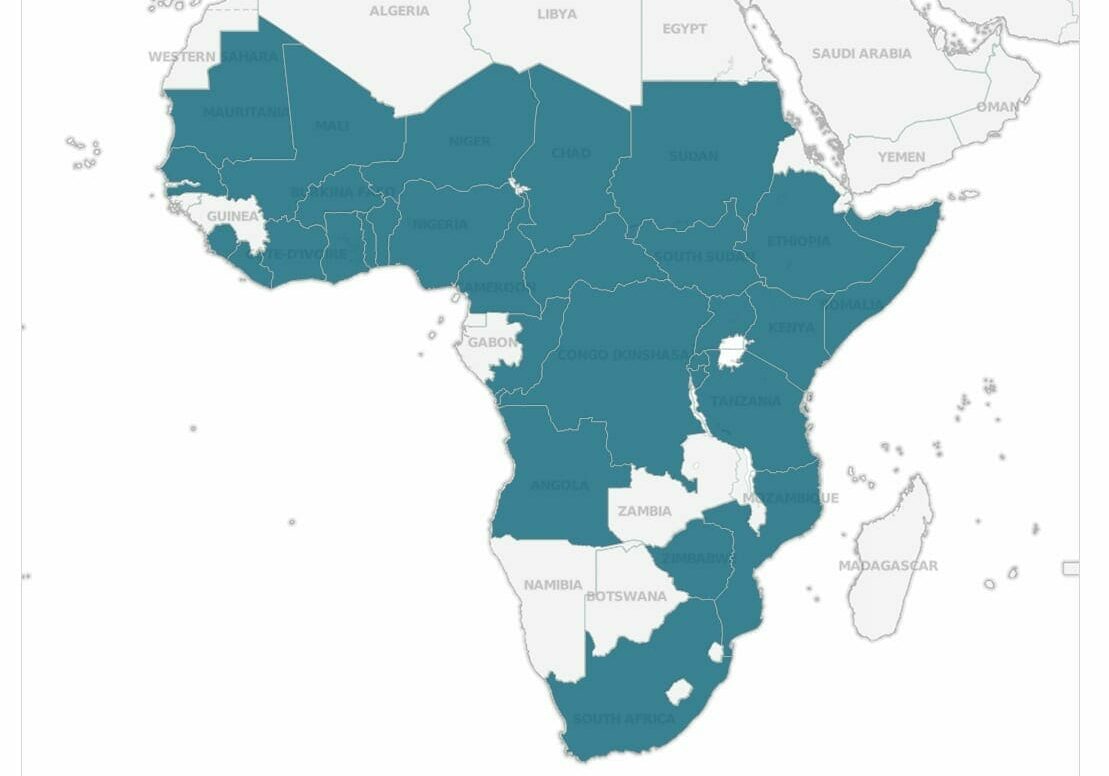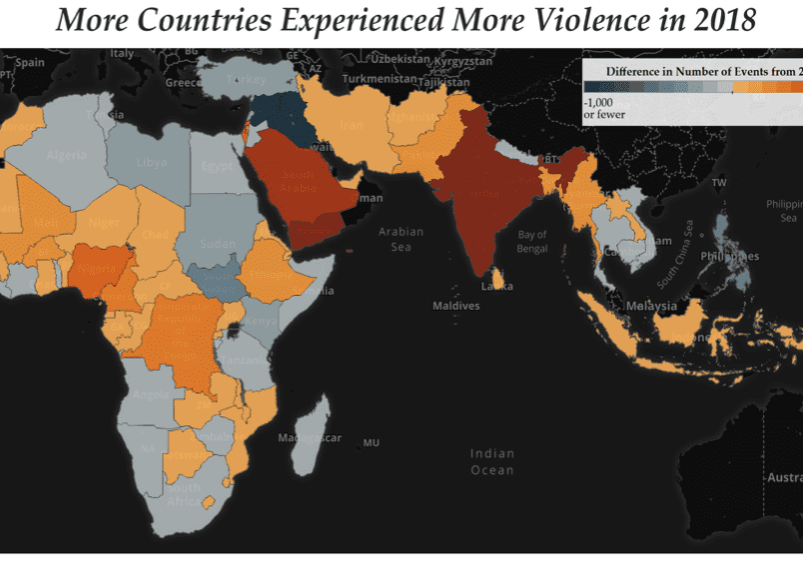About the Program
Armed Conflict
The Armed Conflict Location & Event Data Project (ACLED) provides real-time data on political violence and demonstration activity around the world, enabling detailed analysis of conflict patterns, actors, and dynamics. The Social Conflict Analysis Database (SCAD) tracks protests, riots, strikes, inter-communal conflict, government violence against civilians, and other forms of social conflict, covering all of Africa, Mexico, Central America, and the Caribbean.
In 2019, the Strauss Center, in partnership with ACLED, launched a new data project that explores political violence targeting women worldwide. The data capture information on political violence and demonstration events that occur within the public sphere, ranging from war-time sexual violence and attacks on female politicians to repression of everyday women trying to engage in political processes. These data offer a new tool to track politically motivated attacks on women over time and across countries; address a number of critical gaps left by the constellation of efforts over the years to monitor and assess political gender-based violence; and complement the range of essential past and ongoing initiatives.
The project was directed by Strauss Center lead Anne Clary and ACLED Director of Research & Innovation Roudabeh Kishi.
All data on political violence targeting women and demonstrations featuring women continue to be updated by ACLED weekly and available for download through ACLED’s main data export tool as well as through a curated data file. FAQs for data usage are available here.
Featured Links
The Armed Conflict Location and Event Dataset (ACLED)
The Strauss Center’s Defense Department grants have provided, among other things, support for ACLED, which codes the dates, actors, locations, fatalities, and types of all reported political violence and demonstration events in more than 190 countries and territories in real time. ACLED collects data on the exact location and date of battle events, transfers of military control, headquarter establishment, civilian violence, rioting, and more. ACLED data are disaggregated by type of violence—including battles between armed actors, violence against civilians, and rioting—and by a wide variety of actors including government forces, rebel groups, and militias.
ACLED is led by Strauss Center Senior Fellow Clionadh Raleigh of the University of Sussex. It is operated by Director of Research & Innovation Roudabeh Kishi and Director of Programs & Operations Olivia Russell, with researchers based around the world.
Research and Data
ACLED is a disaggregated data collection, analysis, and crisis mapping project. As of 2021, ACLED has recorded more than a million individual events across Africa, the Middle East, Latin America & the Caribbean, East Asia, South Asia, Southeast Asia, Central Asia & the Caucasus, Europe, and the United States of America -- with coverage expanding to Canada and Oceania currently underway. Please note that the dataset has different coverage periods for different regions and countries, as back-coding remains ongoing.
In addition to data collection, the ACLED team conducts analysis to describe, explore, and test conflict scenarios, with all reports made freely available to the public for non-commercial use. In addition to regular analytical pieces and thematic special projects, ACLED also publishes weekly regional overviews, which contextualize the most recent developments in each region.
ACLED is widely used by U.S. government and military agencies as well as other international governments, humanitarian practitioners, academic researchers, international organizations, and the media. ACLED data and analysis inform humanitarian and development work in conflict-affected contexts, diplomatic policy, and academic research on conflict dynamics. ACLED is the highest quality and most widely used real-time data and analysis source on political violence and protest around the world.
Social Conflict
The Strauss Center’s Defense Department grant provides, among other things, funding for creation of the Social Conflict Analysis Database (SCAD). While previous conflict datasets have focused on large-scale conflicts like civil and international wars, SCAD has catalogued the myriad ways conflict manifests as political and social disorder. SCAD includes protests, riots, strikes, inter-communal conflict, government violence against civilians, and other forms of social conflict.
SCAD is directed by Strauss Center Senior Fellows Cullen Hendrix of the University of Denver and Idean Salehyan of the University of Texas at Dallas.
The current version of SCAD includes information on over 10,300 social conflict events in Africa and Latin America from 1990 to 2015. The updated version of SCAD, released in 2016, expands its temporal geographic coverage to include all countries in Africa, 13 countries in Latin America (Mexico, Central America, and the Caribbean), and 7 countries in the Middle East (Bahrain, Kuwait, Oman, Qatar, Saudi Arabia, United Arab Emirates, and Yemen). Each event record contains information on the location, timing, and magnitude of social conflict events, as well as the actors, targets, issues of contention, and government response.
The dataset is now widely used by U.S. government and military agencies, academic researchers, and international organizations.
Click here to access the dataset and here to learn more about the research.





